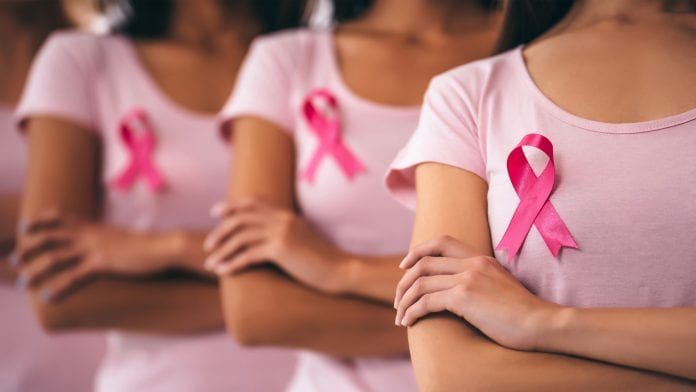
Today, on International Women’s Day, the World Health Organization (WHO) has launched its new Global Breast Cancer Initiative which aims to reduce global breast cancer mortality by 2.5% per year until 2040.
The Global Breast Cancer Initiative will see the WHO, working in unison with other UN agencies and partner organisations to provide guidance to governments on how to strengthen systems for diagnosing and treating breast cancer. This is expected to lead to improved capacities to manage other types of cancer.
Breast cancer has now overtaken lung cancer as the world’s mostly commonly-diagnosed cancer, and, according to statistics released by the International Agency for Research on Cancer (IARC) in December 2020, is responsible for one in six of all cancer deaths among women.
Improving survival rates in low-income countries
Survival rates for breast cancer in high-income countries far exceed those in low-income countries, and the premature deaths and high out-of-pocket expenditure that arise when breast cancer services are unavailable or unaffordable result in social disruption, impoverishment, family instability, and orphaned children, as well as threatening economic growth.
Dr Bente Mikkelsen, Director of the Department of Noncommunicable Diseases at WHO, said: “Although we have seen substantive progress in reducing breast cancer mortality in many high-income countries during the last two decades, little progress has been made in low-and middle-income countries.
“The higher mortality in these lower-income countries is a result of late-stage diagnosis and inadequate access to quality care. Together, we can address this unacceptable inequity.”
Diagnosis, treatment, and care
The initiative will focus on three main aspects of breast cancer care, including health promotion, timely diagnosis, and comprehensive treatment, and supportive care. Health promotion will include public education about the signs and symptoms of breast cancer, risk reduction strategies, and reducing the stigma associated with breast health. Timely diagnosis should reduce delays between the time a patient first interacts with the health system and the initiation of breast cancer treatment, and comprehensive treatment and care for breast cancer should include access to surgery, chemotherapy and/or radiotherapy, as well as rehabilitation support for women following treatment, and palliative services to reduce pain and discomfort.
Dr Ben Anderson, leading the work on the new Initiative at WHO, said: “Global partners, experts, and other organisations will be convened through the Initiative to map existing activities, develop roadmaps, and establish multisectoral working groups to address health promotion and early detection, timely breast cancer diagnosis, and comprehensive breast cancer treatment and supportive care. The demand for a global approach, that brings together the best expertise on breast cancer control from around the world, is high, as is the excitement about what can be achieved.”
To help implement the initiative across the globe, an evidence-based technical package will be provided to countries, which, along with online learning platforms and other types of support, will incorporate existing WHO cancer tools and products to promote an integrated approach across cancers and to strengthen health systems more broadly.






















